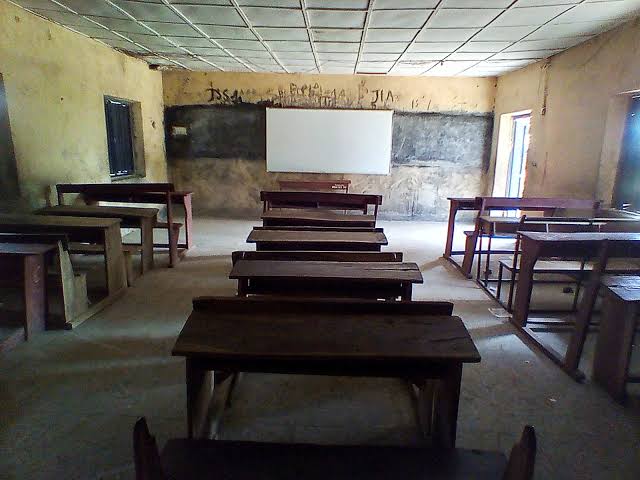Princess Kelechi
A total of 11, 536 schools have been shut down since December 2020 due to abductions and security issues in Northern Nigeria, the United Nations Children Fund (UNICEF) has disclosed.
The UN agency said the school closures have impacted the education of approximately 1.3 million children in the 2020/21 academic year. It added that interruption of their learning contributes to gaps in children’s knowledge and skills and may lead to the loss of approximately $3.4 billion in these children’s lifetime earnings.
“This, risks to further perpetuate cycles of poverty and inequality, the agency said in a statement on Wednesday to mark the 8th Anniversary of the Abduction of 276 students at Government Girls’ Secondary School Chibok.
UNICEF revealed that since December Since December 2020, 1,436 school children and 17 teachers have been abducted from schools, and 16 school children lost their lives.
“Unsafe schools, occasioned by attacks on schools and abduction of students, are reprehensible, a brutal violation of the rights of the victims to education, and totally unacceptable. Their occurrences cut short the futures and dreams of the affected students,” said Peter Hawkins, UNICEF Representative in Nigeria.
“Attacks on learning institutions render the learning environment insecure and discourage parents and caregivers from sending their wards to schools, while the learners themselves become fearful of the legitimate pursuit of learning. The invisible harm school attacks inflict on the victims’ mental health is incalculable and irredeemable.
“Girls have particularly been targeted, exacerbating the figures of out-of-school children in Nigeria, 60 percent of whom are girls. It is a trajectory which must be halted, and every hand in Nigeria must be on deck to ensure that learning in Nigeria is not a dangerous enterprise for any child, particularly for girls,” Hawkins added.
The UN agency therefore called on Nigerian government to make schools safe and provide a secure learning environment for every child, especially for girls, to increase girls’ enrolment, retention, and completion of education.
UNICEF further informed that with funding from donors, it is collaborating with the government of Nigeria to protect children’s right to education in a safe and inclusive learning environment. This involves building the capacity of School-based management committees (SBMCs) on school safety and security and strengthening community resilience.
In Katsina State, the agency disclosed that 300 SBMC members have been trained, and schools, supported through the Girls’ Education Project (GEP3) funded by the Foreign, Commonwealth and Development Office of the UK, have developed Emergency Preparedness and Response Plans to mitigate the impact of potential and actual threats.
“Multi-sectoral task teams on school safety have also been established across all the 34 LGAs of Katsina state to provide timely and efficient networking among actors on school security, with particular focus on the safety of girls. Additionally, 60 Junior Secondary Schools have developed emergency plans and tested the plans in evacuation drills.
“In Katsina State, government and communities have fenced some schools, and this is encouraging girls to attend school, underscoring the reality that collaboration is required in addressing insecurity in schools and making schools safe, especially for girls,” the statement added.
Although Nigeria has ratified the Safe Schools Declaration, schools and learners are not sufficiently protected, UNICEF noted, adding that unless greater attention is given to protecting children, teachers and schools, they will continue to come under attack. Urgent, coordinated action is needed to safeguard the right to learn for every child in Nigeria.

